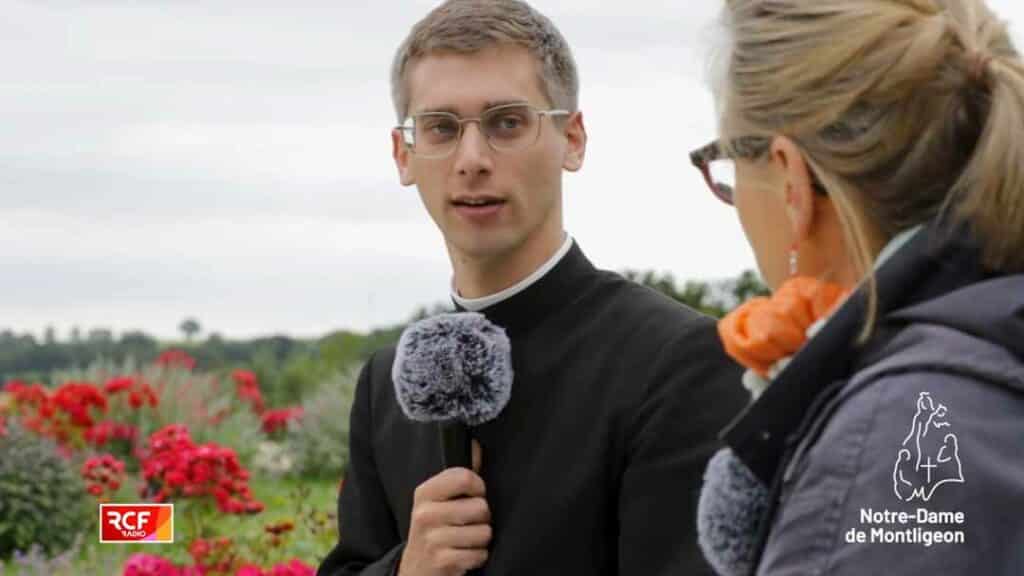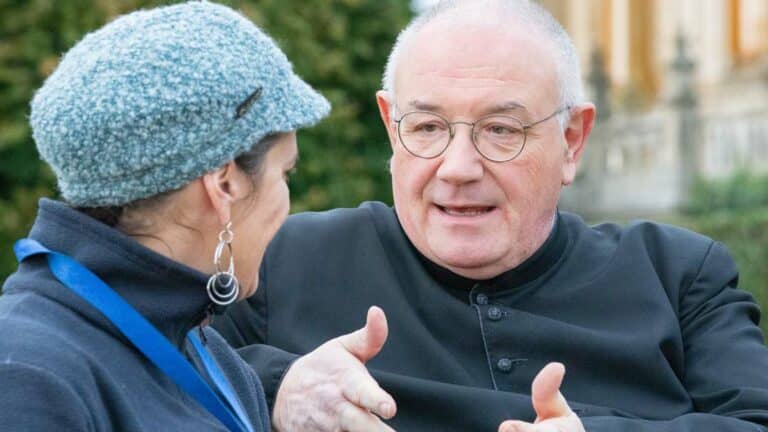Cremation is getting more and more popular in France. Over 40% of the dead are now cremated. This funeral practice raises questions, particularly in the French culture where burial is the habit. How does the Church regard cremation? Don Axel de Perthuis, chaplain at the Shrine, considers the matter for the program Sanctuaires normands, broadcast on Tuesdays at 7:15pm on RCF Orne-Calvados-Manche.
What is the process of cremation?
Quite simply, this practice involves burning the corpse prior to transferring the ashes into an urn. They are then treated just like a body that was not incinerated, which means that the ashes are buried or sometimes scattered.
This does not make the church service dispensable, does it?
Of course not. Today you may request a funeral ceremony in a church, followed by incineration of the body. However this has not always been so. For a long time, incineration, or cremation, has been forbidden by the Church because it evinced a denial of the resurrection of the bodies. It meant that you were averse to the Christian faith.
Incineration is allowed since 1963. In fact, there has been a cultural shift and the symbolic anti-Christian understanding of incineration has almost completely disappeared today. As a result, this practice is accepted, even if the Church reminds its preference for burial as being more respectful for the body.
How would you explain this? Isn’t the result identical, with the body turning to dust on the one hand and to ashes on the other hand?
Eventually the result is the same. However, when the body is buried in a cemetery, the family members are able to visit the grave and recollect. It is said that the person ‘rests’, even if in fact the person itself is not present in the corpse. Still, the person’s body, or what remains of it, is a part of the person. Therefore, burying a deceased’s body is a means to come close and pray.
Moreover, destroying the body through incineration is a rather violent process. Such violence does not occur in burial since, quite simply, the body is allowed to naturally decay over time.
Is cremation part of the present trend where people want to control their body?
It may be so. Some traditions may also come from other cultures. Also, for some people, choosing cremation might also be a way to avoid disturbing others, wishing that their body takes the smallest space possible after death so that others will not be bothered. However this may not be a good reason for choosing this option.
According to the Church, how should the ashes be dealt with after cremation?
The Church is very clear on the issue of the ashes. In particular, the scattering of ashes is forbidden, even if the French law allows it. The ashes should remain in the urn and not be divided between several members of the family. Besides, the Church specifies that the ashes must not be kept at home, which would violate the French law anyway.
Therefore, the ashes must be placed in an appropriate place, like a cemetery or a columbarium, to allow people to come and recollect near the remains of the deceased person. And, last, the Church requires that the ashes be dealt with just like bodies are treated.
Is the scattering of ashes still possible in a cemetery, like the garden of remembrance for instance?
The French State allows this, however the Church insists on refraining to scatter the ashes. Indeed the Church considers that this could lead to a misunderstanding. It could induce pantheistic ideas and wrong philosophical conceptions. Like he idea of the merging of the soul in a “great Whole”, for instance, which is not really part of Christian faith.
If the body has been reduced to ashes, will this make the resurrection of bodies more difficult?
The fact is, Christ is risen from his body. The same matter was used by God to restore its life. However, God almighty does not need matter to restore our bodies. Just like He created everything from nothing, He will be able to breathe a new life into our bodies without any matter.
In any case, whether the person is buried or cremated, the matter is eventually reduced. The Lord doesn’t need to find each individual atom. He can recreate everything from scratch, since the body’s information is contained in the soul.
What happens when loved ones disagree with the deceased’s wish to be cremated?
I think respecting last wills as much as possible is important, also they should not be regarded as exceedingly sacred. You need a good reason to override them.
In the end, what is encouraged by the Church beyond the issue of cremation versus burial is to recall the deceased and pray for them?
That’s right. The Church can create the conditions for such prayer for the deceased by ensuring that the prayer is associated to the place where the body of the person lies. I think this is why it would rather have the body stay in one place than being scattered.




